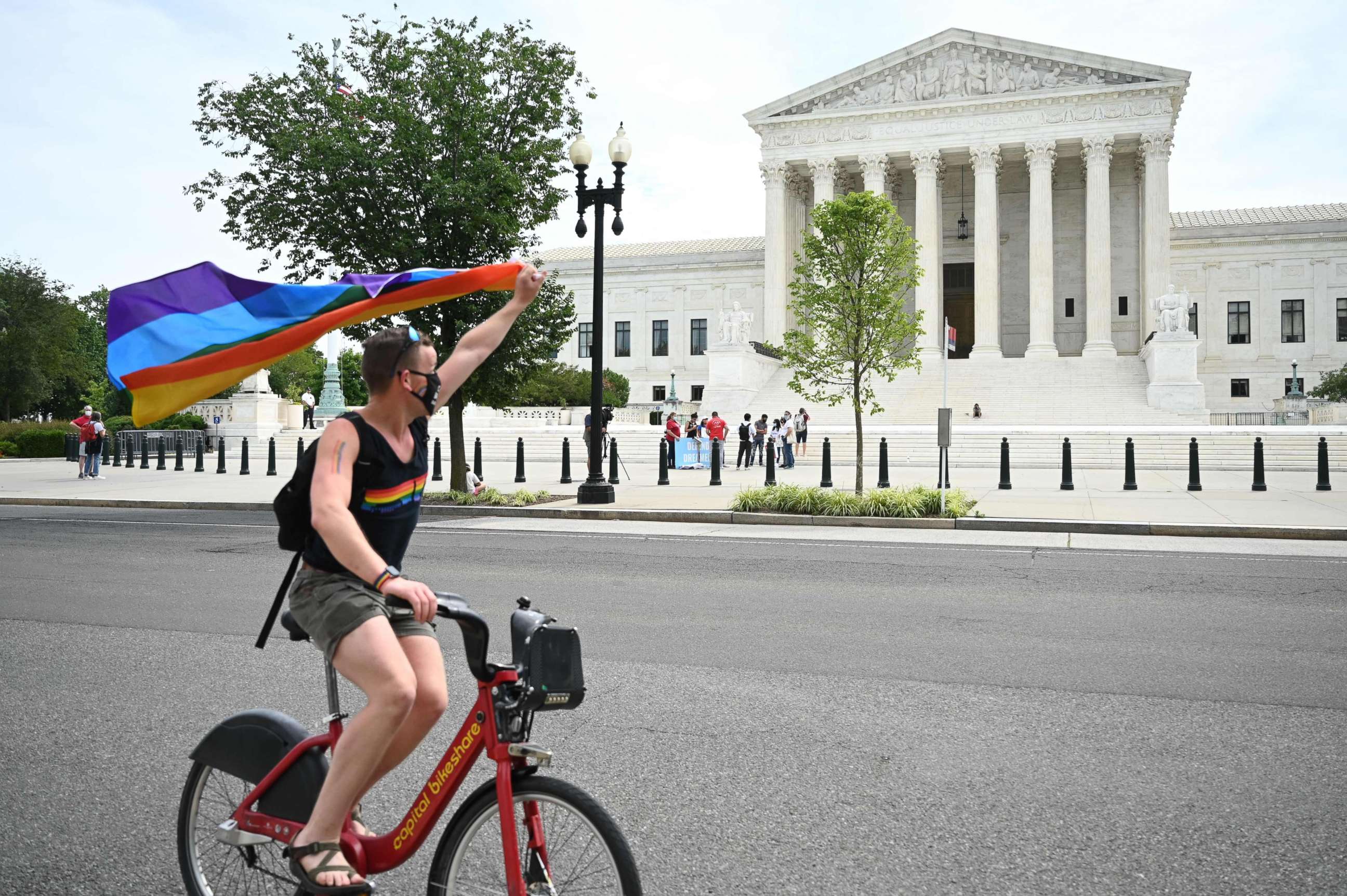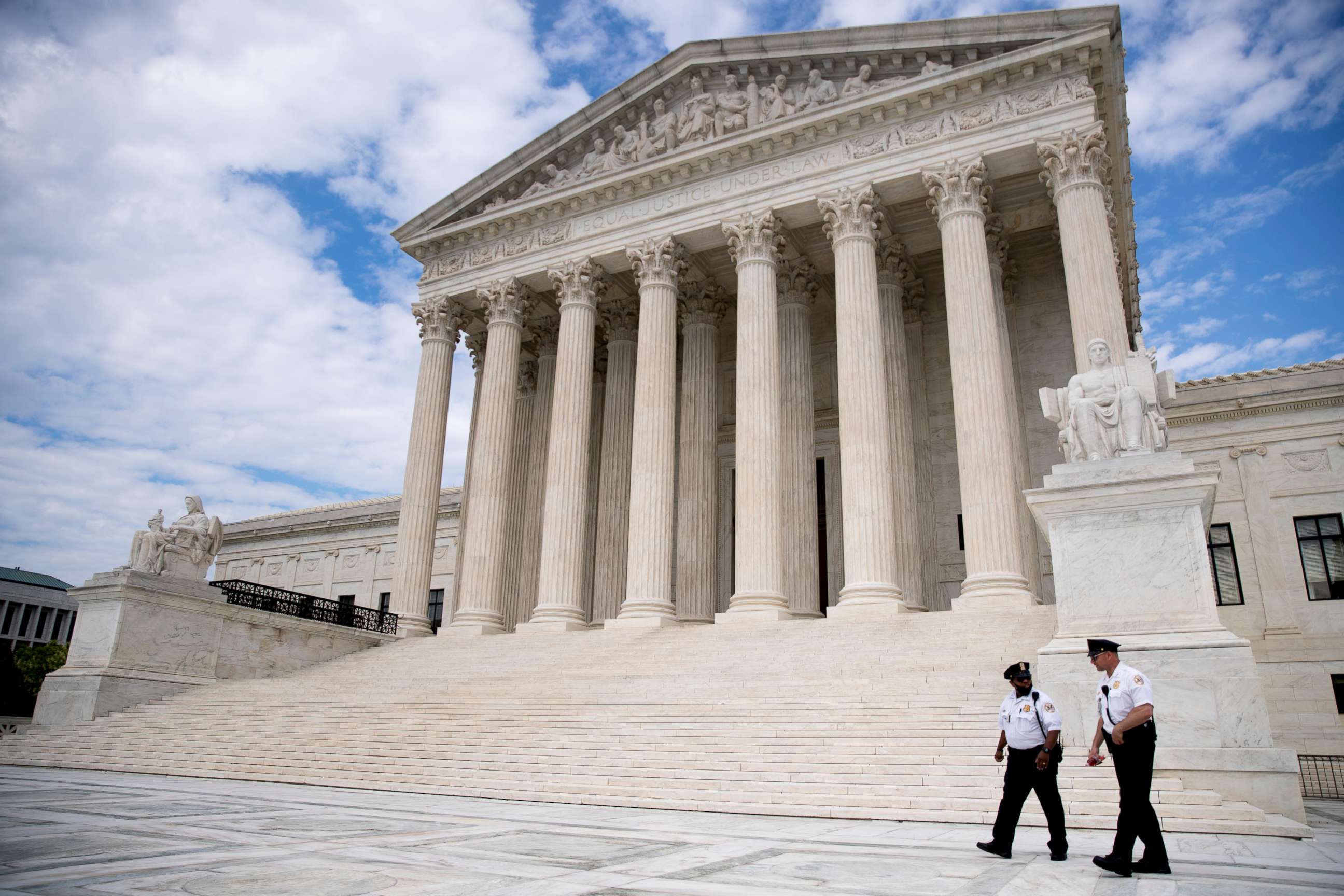Supreme Court bans LGBT employment discrimination
Justice Gorsuch, appointed by Trump, authors landmark LGBT rights decision.
In a sweeping landmark decision, the U.S. Supreme Court on Monday ruled that employment discrimination on the basis of sexual orientation or gender identity is prohibited under federal civil rights law.
"An employer who fires an individual for being homosexual or transgender fires that person for traits or actions it would not have questioned in members of a different sex. Sex plays a necessary and undisguisable role in the decision, exactly what Title VII forbids," wrote Justice Neil Gorsuch, a conservative appointed by President Donald Trump, in the majority opinion.
Title VII of the 1964 Civil Rights Act prohibits discrimination in the workplace on the basis of race, religion, national origin and sex. The court, by a vote of 6 to 3, with Chief Justice John Roberts joining Gorsuch and the court's liberal wing, said "sex" is a distinct characteristic but inseparable from the concepts of sexual orientation and gender identity.
"An employer who fires a woman, Hannah, because she is insufficiently feminine and also fires a man, Bob, for being insufficiently masculine may treat men and women as groups more or less equally. But in both cases the employer fires an individual in part because of sex," Gorsuch wrote.

The decision is the most significant affirmation of LGBT rights in the United States since the 2015 Supreme Court decision that legalized same-sex marriage. It is the court's first decision addressing transgender civil rights.
"All the trans people and LGBTQ people that lived and died so that we could have this win didn't get to see it, but we are here and we will keep fighting," said ACLU attorney Chase Strangio, who is transgender and represented transgender plaintiff Aimee Stephens.
Before the decision, LGBT job discrimination was still technically legal in much of the nation. Less than half the states have laws explicitly prohibiting workplace discrimination on the basis of sexual orientation or gender identity. An estimated 11 million Americans identify as LGBT according to the Williams Institute.
The court's decision specifically addresses the cases of two gay men and one transgender woman, who were fired from their jobs and who sued their employers alleging discrimination.
Gerald Bostock, a Georgia child welfare services coordinator, said he was dismissed in 2013 for unspecified "unbecoming conduct" after his employer learned he had joined a gay softball league. New York skydiving instructor Donald Zarda was fired in 2010 after a customer complained that he had come out to her as gay during a jump. And, in Michigan, transgender funeral director Aimee Stephens was fired from her job of seven years after telling her boss that she planned to transition. Stephens died last month from kidney disease; Zarda died in an 2014 accident.
"There are truly no words to describe just how elated I am," Bostock said in a statement to ABC News. "When I was fired seven years ago, I was devastated. But this fight became about so much more than me. I am sincerely grateful to the Supreme Court, my attorneys, the ACLU and every person who supported me on this journey. Today, we can go to work without the fear of being fired for who we are and who we love."
While Stephens didn't survive to experience her legal victory, she is being hailed as a "hero" by members of the LGBTQ community. "Aimee was fired for being transgender and she chose to standup for herself and for all transgender people," said Mara Keisling, executive director of the National Center for Transgender Equality. "Aimee was deeply committed to justice and fairness and an incredible person."
Justices Samuel Alito, Brett Kavanaugh and Clarence Thomas dissented in the case. All three argued that Congress, not the court, should explicitly draft protections for LGBT people.
"The question in these cases is not whether discrimination because of sexual orientation or gender identity should be outlawed. The question is whether Congress did that in 1964. It indisputably did not," wrote Alito.
The Democrat-controlled House of Representatives in May 2019 passed the Equality Act which would amend Title VII to explicitly include sexual orientation and gender identity as protected characteristics in the workplace, housing, service and public accommodations under federal law. It has not been taken up by the Republican-controlled Senate or supported by Trump.
The attorney for Harris Funeral Homes, which fired Stephens, accused the court of "redefining 'sex.'"
"Americans must be able to rely on what the law says, and it is disappointing that a majority of the justices were unwilling to affirm that commonsense principle. Redefining 'sex' to mean 'gender identity' will create chaos and enormous unfairness for women and girls in athletics, women's shelters and many other contexts," said John Bursch.
Gorsuch took direct aim at those arguments in his opinion, rejecting concern about "social upheaval."

"They say sex-segregated bathrooms, locker rooms, and dress codes will prove unsustainable after our decision today," Gorsuch wrote, "but none of these other laws are before us; we have not had the benefit of adversarial testing about the meaning of their terms, and we do not prejudge any such question today."
"Those who adopted the Civil Rights Act might not have anticipated their work would lead to this particular result," he wrote. "Likely, they weren't thinking about many of the Act's consequences that have become apparent over the years, including its prohibition against discrimination on the basis of motherhood or its ban on the sexual harassment of male employees. But the limits of the drafters' imagination supply no reason to ignore the law's demands."
"The Supreme Court's historic decision affirms what shouldn't have even been a debate: LGBTQ Americans should be able to work without fear of losing jobs because of who they are," Sarah Kate Ellis, president and CEO of GLAAD, said in a statement.
While the case is historic for its protections granted to LGBT people, it was also historic for how, logistically, the opinion was granted. While the case was argued months before the novel coronavirus struck the United States, moving the Supreme Court's oral arguments to a virtual setting, the decision was announced in a virtual format. The Supreme Court website quickly faced apparent issues with so many viewers attempting to download the opinion, which is over 170 pages, leading to delays in accessing it.
In his first reaction to the Supreme Court’s ruling, President Trump seemed resigned to the ruling.
“They've ruled, and we live with the decision. That's what it's all about. We live with the decision of the Supreme Court," he said at an afternoon White House photo op, adding that it was a "very powerful decision."
This report was featured in the Tuesday, June 16, 2020, episode of “Start Here,” ABC News’ daily news podcast.
"Start Here" offers a straightforward look at the day's top stories in 20 minutes. Listen for free every weekday on Apple Podcasts, Google Podcasts, Spotify, the ABC News app or wherever you get your podcasts.